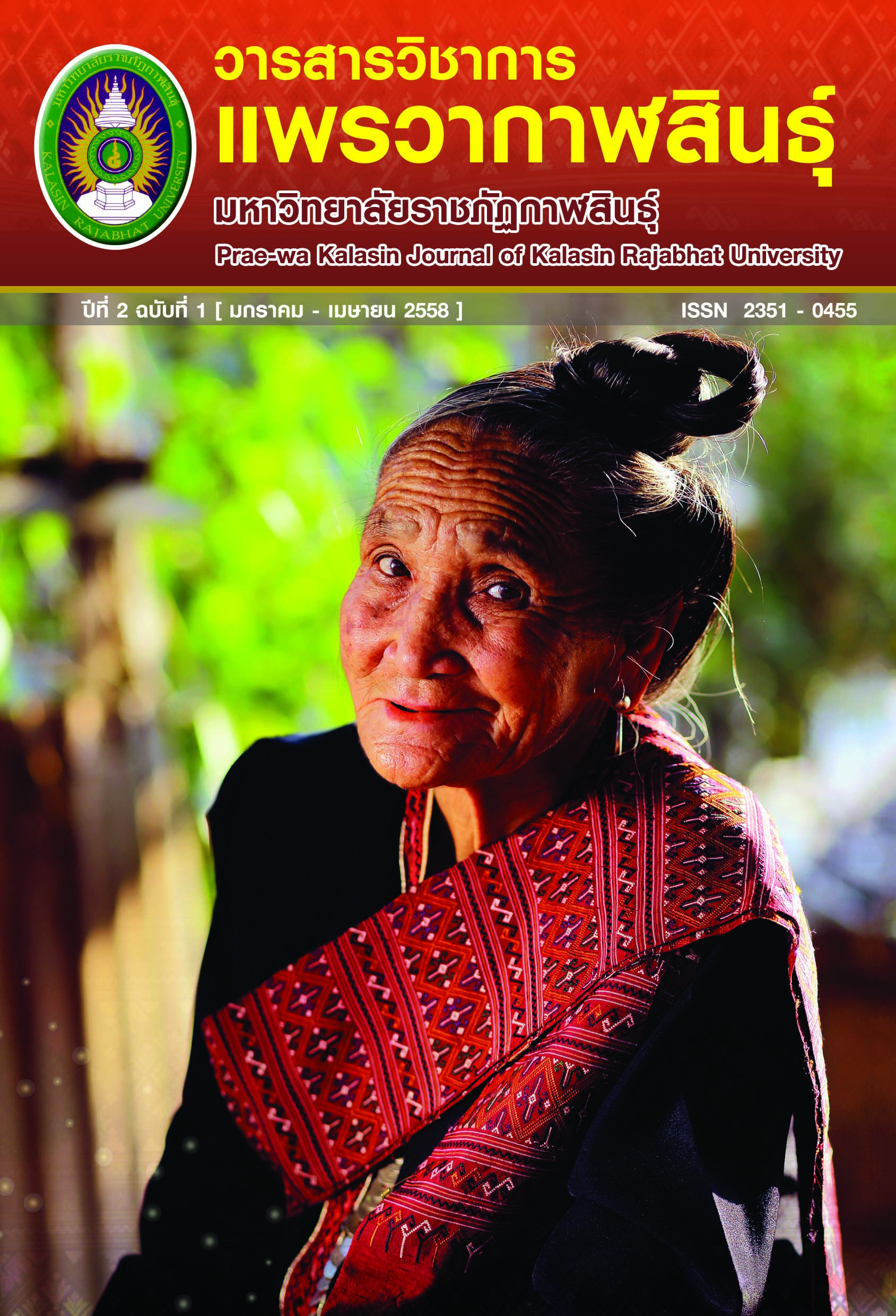Strategies used by Residents of Agricultural Households in Bankhamphai, Muang District, Kalasin Province to Maintain Their Livelehoods
Main Article Content
Abstract
การวิจัยเรื่อง ยุทธศาสตร์การดำรงชีพของครัวเรือนเกษตรกรในชุมชนบ้านคำไผ่ อำเภอเมือง จังหวัดกาฬสินธุ์ มีวัตถุประสงค์การวิจัย 3 ประการ คือ 1) เพื่อศึกษาบริบทของครัวเรือนเกษตรกรในชุมชนบ้านคำไผ่ 2) เพื่อศึกษาเงื่อนไขที่มีอิทธิพลต่อการดำรงชีพของครัวเรือนเกษตรกรในชุมชนบ้านคำไผ่ และ 3) เพื่อศึกษายุทธศาสตร์การดำรงชีพของครัวเรือนเกษตรกรในชุมชนบ้านคำไผ่ การวิจัยครั้งนี้เป็นการวิจัยเชิงคุณภาพ เก็บข้อมูลโดยศึกษาเอกสารที่เกี่ยวข้อง มีการวิเคราะห์ข้อมูล 2 ระดับ คือ ระดับครัวเรือนและระดับชุมชน ที่ได้รับผลกระทบจากระบบทุนนิยม โดยเก็บข้อมูลในการสังเกตการณ์แบบมีส่วนร่วมและแบบไม่มีส่วนร่วมในชุมชน ผลการวิจัยพบว่า บริบทการดำรงชีวิตของชุมชนและครัวเรือนเกษตรกรมีการปรับตัวต่อการเปลี่ยนแปลงอย่างมากภายใต้กระแสทุนนิยม และยังพบว่าเงื่อนไขที่มีอิทธิพลต่อการดำรงชีพของชุมชนและครัวเรือนเกษตรบ้านคำไผ่ นั้นมี 7 ประการคือ นโยบายรัฐ กระแสทุนนิยมฤดูกาล/ภัยธรรมชาติ โรคภัยไข้เจ็บ การเปลี่ยนแปลง การอพยพ และความผันผวนราคาผลผลิต และพบว่า การสร้างยุทธศาสตร์การดำรงชีพของครัวเรือนเกษตรกรในชุมชนบ้านคำไผ่ อาศัยความรู้ในการจัดการทรัพย์สิน/ทุนต่างๆ ที่มีอยู่ในชุมชน ใช้เป็นยุทธวิธีในการทำกิจกรรมและการปรับตัวเพื่อการอยู่รอดโดยการสร้างงาน อาชีพกิจกรรมในรูปแบบวิธีการต่างๆ
The objectives of this research are threefold: 1) to present and discuss the context of maintaining a livelihood in the rural farming households of Bankhamphai, Kalisin Province 2) to study the conditions that affect the livelihoods of farmers in Bankhamphai 3) to present and discuss the strategies used for sustaining a livelihood in the community. This research is qualitative research. Data were collected from related documentation. Data were analyzed at 2 levels, the household level and the community level and focused on those who have been affected by the capitalist system. The data included observers, participants and non-participants in the community. The results showed that in the context of the general community, which includes households and subsistence farmers, there is a need to adapt to dramatic changes under capitalism. The study also found that there are seven conditions that affect the livelihoods of households and communities: seasonal income, natural disasters, disease, migration and product price volatility. Property management and capital exiting the community are two additional conditions that farmers must consider when developing tactical strategies to survive. Assuming an adaptive policy position while developing strategies will contribute to the success of the community.
Article Details
Section
Articles (บทความ)

